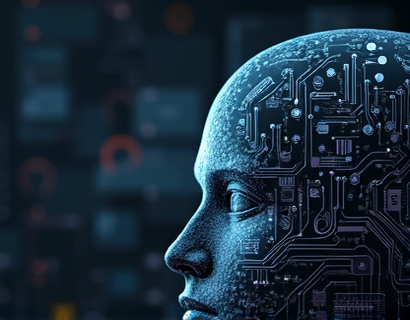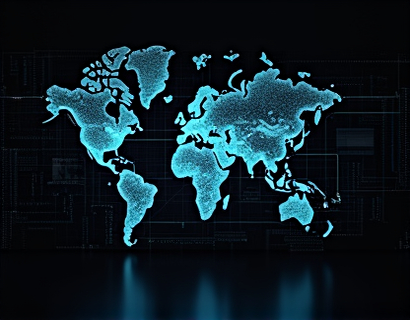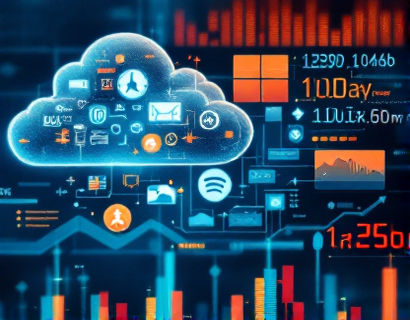AI and Crypto: Transforming Productivity in the Digital Age
The convergence of artificial intelligence (AI) and cryptocurrency is revolutionizing the way we manage tasks and enhance productivity in the digital age. This synergy is not just a technological curiosity but a transformative force that is redefining efficiency across various industries. As we delve into this topic, it's essential to understand the foundational technologies driving this change and how they are being integrated to create advanced solutions for task management and digital efficiency.
Understanding AI and Cryptocurrency
Artificial intelligence, a branch of computer science, focuses on creating systems that can perform tasks requiring human intelligence, such as learning, reasoning, and problem-solving. AI technologies include machine learning, natural language processing, and computer vision, each playing a crucial role in automating and optimizing processes.
Cryptocurrency, on the other hand, is a digital or virtual currency that uses cryptography for security and operates on a decentralized network, typically a blockchain. Bitcoin, the first and most well-known cryptocurrency, paved the way for thousands of alternative coins and tokens, each with unique features and use cases.
The intersection of AI and cryptocurrency is particularly exciting because it leverages the strengths of both technologies. AI can enhance the security, efficiency, and functionality of blockchain networks, while cryptocurrency can provide decentralized and transparent mechanisms for AI systems to operate and share data.
Enhanced Task Management through AI
AI-driven task management tools are redefining productivity by automating routine tasks, providing intelligent recommendations, and optimizing workflows. These tools use machine learning algorithms to analyze user behavior and preferences, adapting to individual needs over time. For instance, AI can predict the most efficient order for completing tasks based on historical data, reducing the cognitive load on users and increasing overall productivity.
One of the key benefits of AI in task management is its ability to handle complex scheduling and resource allocation. AI systems can consider multiple variables, such as team availability, project deadlines, and task priorities, to create optimal schedules. This not only saves time but also reduces the potential for human error, ensuring that tasks are completed efficiently and effectively.
Moreover, AI-powered chatbots and virtual assistants are becoming indispensable in managing day-to-day tasks. These AI entities can handle a wide range of interactions, from setting reminders and sending notifications to processing requests and providing real-time updates. This hands-free approach allows professionals to focus on higher-value activities, driving greater productivity and innovation.
Maximizing Digital Efficiency with Cryptocurrency
Cryptocurrency introduces a new paradigm for digital transactions, offering faster, cheaper, and more secure alternatives to traditional payment methods. In the context of task management and productivity tools, cryptocurrency can facilitate seamless and transparent transactions, eliminating the need for intermediaries and reducing transaction costs.
One significant application is in the form of tokenized incentives. By using cryptocurrency, platforms can reward users for completing tasks or contributing to the network. This not only motivates users but also creates a decentralized economy where value is distributed fairly. For example, a task completion platform could issue tokens as rewards, which users can then use to purchase services or goods within the ecosystem, fostering a closed-loop system.
Blockchain technology, the backbone of cryptocurrency, ensures that all transactions are immutable and transparent. This level of transparency is particularly beneficial for task management, as it builds trust among users and stakeholders. Smart contracts, self-executing contracts with the terms directly written into code, can automate and enforce agreements, reducing the risk of disputes and ensuring that tasks are completed as agreed upon.
Integration of AI and Cryptocurrency
The true power of AI and cryptocurrency is realized when they are integrated into a cohesive system. This integration can lead to the development of advanced platforms that combine the strengths of both technologies. For instance, a productivity platform could use AI to optimize task assignments and cryptocurrency to incentivize participation and ensure fair compensation.
Such a platform could employ AI algorithms to analyze user contributions and allocate tokens based on performance and engagement. This not only motivates users to contribute more but also provides a clear and transparent mechanism for rewarding effort. The AI system can continuously learn and adapt, improving the accuracy of task assignments and the effectiveness of the incentive structure over time.
Furthermore, the decentralized nature of blockchain ensures that data is secure and tamper-proof. This is crucial for maintaining the integrity of task management systems, where data accuracy and reliability are paramount. AI can enhance this by providing advanced analytics and insights, helping users and organizations make data-driven decisions.
Case Studies and Real-World Applications
Several projects and platforms are already leveraging the combination of AI and cryptocurrency to transform productivity and task management. One notable example is a decentralized task marketplace that uses AI to match workers with projects based on skill sets and availability, while using a native cryptocurrency to facilitate payments and incentivize high-quality work.
Another example is an AI-driven project management tool that integrates blockchain for secure and transparent collaboration. This tool uses AI to predict project timelines, allocate resources, and monitor progress, while blockchain ensures that all changes and transactions are recorded and verifiable. This dual approach not only enhances efficiency but also builds trust among team members and stakeholders.
These case studies demonstrate the practical benefits of integrating AI and cryptocurrency. They show how these technologies can work together to create more efficient, transparent, and user-friendly systems for managing tasks and enhancing productivity.
Future Prospects and Challenges
The future of AI and cryptocurrency in productivity and task management is promising, with numerous potential applications and innovations on the horizon. As AI continues to advance, we can expect more sophisticated tools that can handle even more complex tasks and provide deeper insights. Similarly, the evolution of blockchain and cryptocurrency technologies will likely lead to more scalable and user-friendly solutions.
However, there are also challenges to consider. One major challenge is the regulatory environment, as both AI and cryptocurrency are still navigating uncertain legal landscapes. Ensuring compliance and addressing concerns around privacy and security will be crucial for widespread adoption. Additionally, there is a need for greater user education to help individuals and organizations understand and effectively utilize these technologies.
Another challenge is the technical integration of AI and cryptocurrency systems. Developing seamless and robust integrations that leverage the strengths of both technologies requires significant expertise and resources. Nevertheless, the potential benefits make these efforts worthwhile.
Conclusion
The integration of AI and cryptocurrency is transforming productivity and task management in the digital age. By combining the intelligence of AI with the security and transparency of cryptocurrency, we are witnessing the emergence of powerful tools that enhance efficiency, streamline workflows, and foster innovation. As these technologies continue to evolve, they will play an increasingly vital role in shaping the future of digital work environments.
For tech-savvy innovators and early adopters, the opportunities are vast. Embracing AI and cryptocurrency can lead to significant advancements in task management and productivity, positioning individuals and organizations at the forefront of the digital revolution. Whether through developing new applications or adopting existing solutions, the potential to transform how we work and collaborate is immense.











































